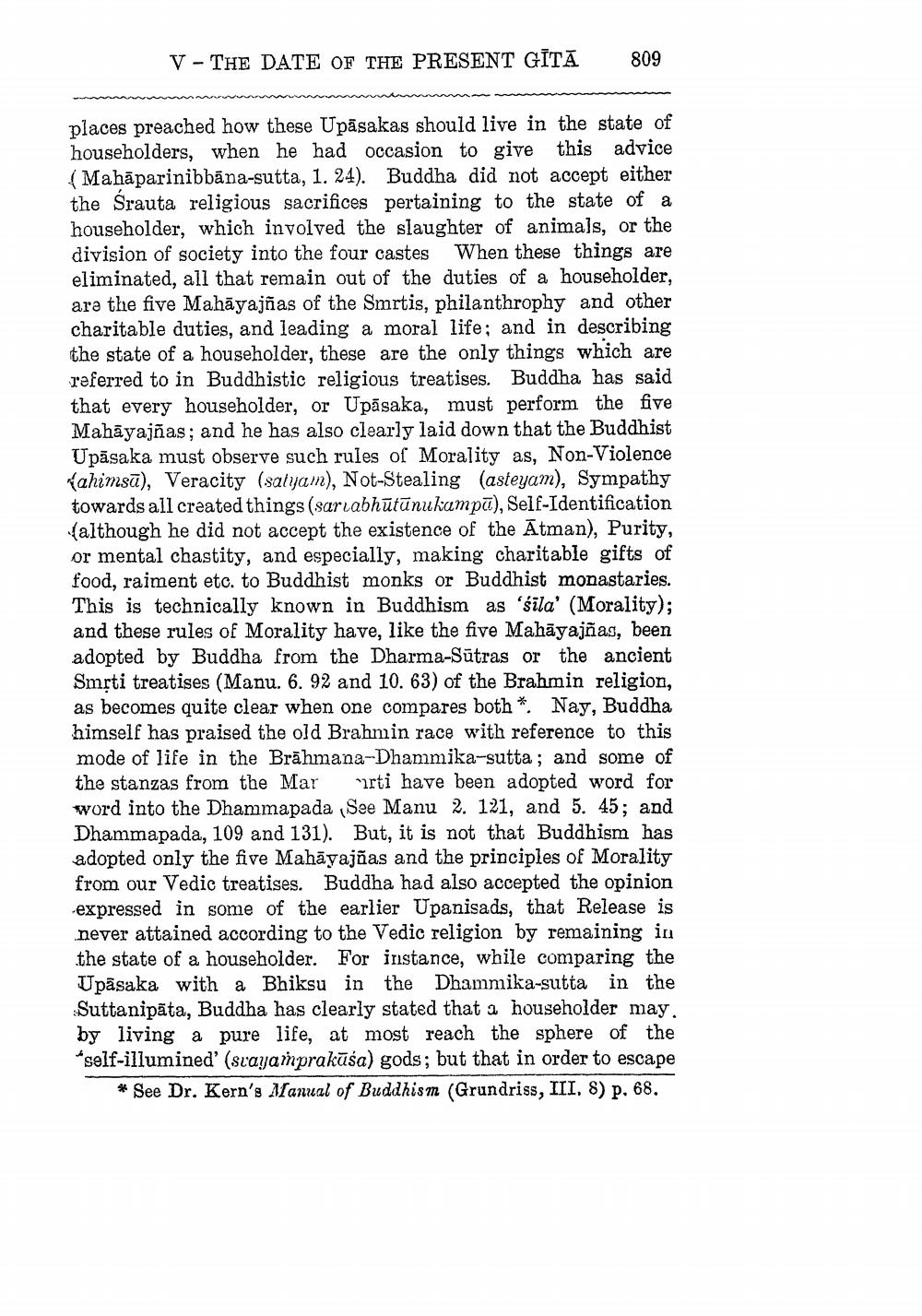________________
V THE DATE OF THE PRESENT GĪTĀ 809
places preached how these Upasakas should live in the state of householders, when he had occasion to give this advice (Mahāparinibbana-sutta, 1. 24). Buddha did not accept either the Srauta religious sacrifices pertaining to the state of a householder, which involved the slaughter of animals, or the division of society into the four castes When these things are eliminated, all that remain out of the duties of a householder, are the five Mahāyajñas of the Smrtis, philanthrophy and other charitable duties, and leading a moral life; and in describing the state of a householder, these are the only things which are referred to in Buddhistic religious treatises. Buddha has said that every householder, or Upasaka, must perform the five Mahāyajñas; and he has also clearly laid down that the Buddhist Upāsaka must observe such rules of Morality as, Non-Violence Kahimsa), Veracity (satyam), Not-Stealing (asteyam), Sympathy towards all created things (sarvabhutunukampu), Self-Identification (although he did not accept the existence of the Atman), Purity, or mental chastity, and especially, making charitable gifts of food, raiment etc. to Buddhist monks or Buddhist monastaries. This is technically known in Buddhism as 'sila' (Morality); and these rules of Morality have, like the five Mahāyajñas, been adopted by Buddha from the Dharma-Sutras or the ancient Smrti treatises (Manu. 6. 92 and 10. 63) of the Brahmin religion, as becomes quite clear when one compares both*. Nay, Buddha himself has praised the old Brahmin race with reference to this mode of life in the Brahmana-Dhammika-sutta; and some of the stanzas from the Mar rti have been adopted word for word into the Dhammapada (See Manu 2. 121, and 5. 45; and Dhammapada, 109 and 131). But, it is not that Buddhism has adopted only the five Mahāyajñas and the principles of Morality from our Vedic treatises. Buddha had also accepted the opinion expressed in some of the earlier Upanisads, that Release is never attained according to the Vedic religion by remaining in the state of a householder. For instance, while comparing the Upasaka with a Bhiksu in the Dhammika-sutta in the Suttanipata, Buddha has clearly stated that a householder may. by living a pure life, at most reach the sphere of the *self-illumined' (svayamprakāśa) gods; but that in order to escape
*See Dr. Kern's Manual of Buddhism (Grundriss, III, 8) p. 68.




